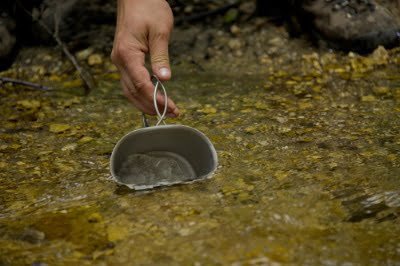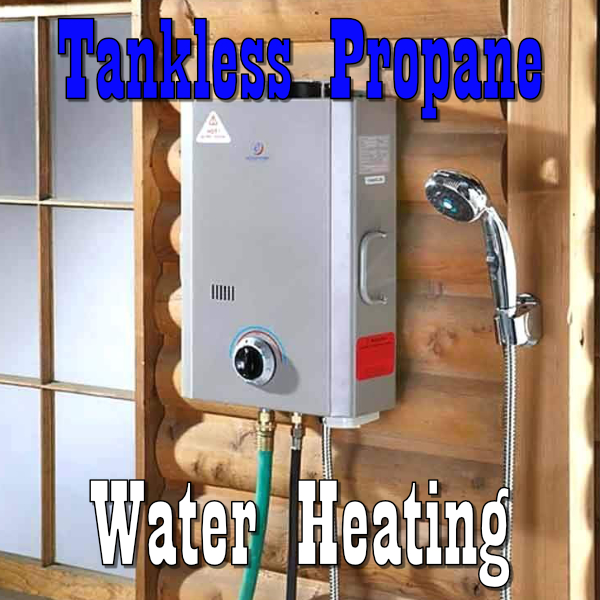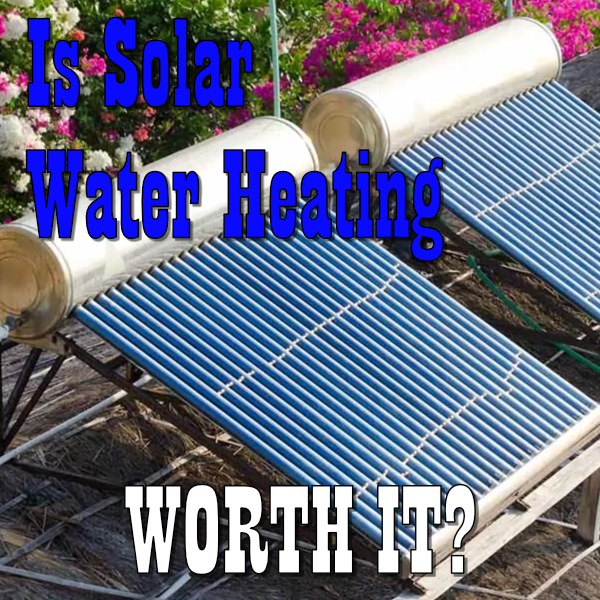I love gravity fed water filters! Why? Because they require no plumbing or electricity to run.
This makes gravity fed water filters a completely autonomous system that is perfect for off grid living, removing toxins from municipal water, and are handy for boil orders and emergency filtration situations.
In this article, I go over the best gravity water filter available on the market.
I also cover pretty much everything you need to know about these systems from off grid use, to filter maintenance and more.
Let's get started!
Recommended Reading: Off Grid Water System Solutions for Your Homestead
Berkey Gravity Water Filter Systems Are The Best (In My Opinion)
The Berkey water filter systems are well known in the off grid community as one of the best drinking water solutions. There has been extensive testing on Berkey's water quality and the company touts itself as the most powerful gravity filter currently on the market.
Pros and Cons
Pros
- Filters and purifies water removing 99.99% of bacteria and viruses
- Compact system that provides a substantial amount of filtered water
- Additional element can remove fluoride (separate purchase)
Cons
- Rubber stoppers and washers can make water taste funny, easily replaceable
- Filters can clog up quickly, requires regular flushing and maintenance
- Will not ship to CA or IA
Overall, I recommend Berkey water filter systems for their powerful purification process to remove virtually all bacteria and viruses from water. I also like that the Berkeys are made of high-quality materials and are built to last.
Users have reported that the unit is well manufactured and sturdy, although I do recommend upgrading to the stainless steel spigot as the plastic one can break.
The Black Berkey Elements, which are the replaceable ceramic filters that go inside the Berkey, remove many contaminants:
- Fluoride - 99.9%
- Viruses – 99.9%
- Pathogenic Bacteria - 99.9%
- Coliform and e-Coli - 99.9%
- Pharmaceuticals - 99.5%
Berkey filters also remove lead, arsenic, iron, mercury, chlorine, chloramine, pesticides, etc. You can find the Berkey water testing results here.

The additional fluoride filters can remove the tiny fluoride particles from municipal water sources. Note that these need to be replaced at different frequencies than the black filters.

Users have reported that the unit is well manufactured and sturdy, although I do recommend upgrading to the stainless steel spigot as the plastic one can break.
As with any product, there are concerns and drawbacks.
The first problem is the rubber stoppers and washers. Users complain that it makes the water taste rubbery. I suggest replacing those immediately with plastic ones.
Another problem is the slow rate of filtering.
Some users report that their filters clog up within days of use. This is a typical filtration issue if water has a higher level of sediment, especially from well water and off grid systems.
I strongly recommend getting a whole house prefilter to clear up sediments and debris before running water through this unit.
People question why Berkey will not comply with Iowa and California state lead certifications. Berkey has addressed this issue in this article.
In my opinion, between the published water tests and the article mentioned above, I find Berkey to be a reputable company.
Berkey Water Filter Sizes Comparison Chart
Berkey Name: | Crown Berkey | Imperial Berkey | Royal Berkey | Big Berkey | Travel Berkey | Go Berkey |
|---|---|---|---|---|---|---|
Capacity | 6.0 Gallons | 4.5 Gallons | 3.25 Gallons | 2.25 Gallons | 1.5 Gallons | 1 Quart |
Min. Filters | 2 | 2 | 2 | 2 | 2 | 1 |
GPH Min. Filters | 6.5 GPH | 5.5 GPH | 4 GPH | 3.5 GPH | 2.75 GPH | 1 GPH |
Max. Filters | 8 filters | 6 filters | 4 filters | 4 filters | 2 filters | 1 filter |
GPH Max Filters | 26 GPH | 21.5 GPH | 8 GPH | 7 GPH | 2.75 GPH | 1 GPH |
Dimensions | 11" x 31" | 10" x 27" | 9.5" x 24" | 8.5" x 21" | 7.5" x 19" | 4" x 14" |
Weight | 12 lbs | 10 lbs | 8 lbs | 7 lbs | 6 lbs | 2.4 lbs |
Image |  |  |  |  |  |  |
Purchase Link |
The Difference Between Go Berkey and Travel Berkey
Although there are similarities to these two products, there are several big variations you will want to consider before making your final purchase.
Portability and Application
The Go Berkey and the Travel Berkey are built for different applications.
Although the Travel Berkey is small, it's not quite small enough for hiking and backpacking. It is still portable enough to take with you on vacations, road trips, and camping trips.
The Go Berkey is meant to be portable enough for all the above applications and also is small enough for hiking and backpacking trips. When backpacking, you need a reliable, yet small enough, water filtration and purification system. This Berkey system fits the bill.
Water Capacity and Gallons Per Hour
The Travel Berkey works well to provide clean drinking water for 1 to 3 people a day. Note that the storage capacity is 1.5 gallons, yet the gallons per hour is 2 gallons. So you will need to empty the storage capacity in 45 minutes to get that optimal gallons per hour.
You can set up your Travel Berkey at your base camp and everyone can fill up their water bottles and bladders within an hour or two.
The Go Berkey is good for an individual, possibly two people if you plan out your water filtration timing.
The Go Berkey storage capacity is one quart; there are 4 quarts to a gallon. The Go Berkey will filter at one gallon per hour. Therefore, you will need to empty the storage capacity every fifteen minutes to get the optimal one gallon per hour flow rate.

Height and Diameter
The Travel Berkey stands at 19 inches by 7.5 inches which is just a little shorter than the standard 40L backpacking pack. It is too big to reasonably fit into a pack.
However, the Travel Berkey does nest into itself which brings it down to 12 inches. Even if you break it down, it's still too wide to work in a 40L pack when considering all the other items you will be packing.
The Go Berkey stands at 14 inches and is much slimmer at 4 inches. It could reasonably fit into a 40L backpacking pack. There are other options for water filtration that are smaller than the Go Berkey which I cover in my emergency water filtration article.
Filter Longevity
Since the Travel Berkey is larger, it will filter more water and can hold the fluoride filters. Therefore, you will get cleaner water and more of it over the lifespan of the filters.
The Travel Berkey will give you 6,000 gallons of water before having to replace the filters.
The Go Berkey only uses one filter element and does not have room for any fluoride filters. The Go Berkey will give you 3,000 gallons of water before having to replace the filter.
Price Comparison
Although the prices fluctuate, the average difference is that the Travel Berkey is about 40-50% more expensive than the Go Berkey. You also need to consider the price of the filter changes. The Travel Berkey has 4 filters if you choose to utilize the fluoride filters. The Go Berkey only has 1 filter to replace.
Part Two: Information about Gravity Water Filter Systems
How does a Gravity Water Filter Work?
A gravity container filter uses the force of gravity instead of water pressure to filter water. This eliminates the need for plumbing and electricity, which is great for an emergency or off grid situation.
The container is separated into an upper and lower chamber. Water is poured into the upper chamber and flows over the water filters to collect into the lower chamber.

The main filtration element that gravity filters are known for is the porcelain filter. Unlike standard porcelain, gravity water filters use specialized porcelain that has micro-fine pores so the smallest of viruses can be removed.
Because these types of filters can capture contaminants including bacteria, viruses, and cysts, water from wells and the wild can be drunk after being filtered through these units.
Each system does vary and will have different types of additional proprietary filters installed.
Benefits of a Gravity Water Filter
The biggest benefit of these filters is being able to take water from the wild and make it drinkable. Just be sure to prefilter water so you don’t gunk up your unit with too much debris or sediment.

These units work well in a survival or emergency water situation. If your water gets shut down, or you only have access to untreated water, these filtration systems can provide you with accessible drinking water without having to boil or use chemicals.
You do not need electricity or plumbing for this filtration system to work.
The filters come in various shapes and sizes which can accommodate being placed on a countertop and are easily transportable.
The water tastes wonderful; odors and bad tastes are completely removed.
Drawbacks of a Gravity Water Filter
The flow rate is pretty low on these filters. The typical gravity fed filter can provide from 2 to 6 gallons a day.
You do need to refill these filters manually, so make sure to keep on top of topping it off.
You will need to calculate how much drinking water you need before purchasing a unit. Make sure to see the output of these filters so it can match your family’s water usage.
There will be additional filters that will need periodic replacing and replacement parts can be expensive.
Pitcher Water Filter vs Gravity Fed Water Filter
You may be wondering if a standard water pitcher, such as a Brita or Zero Water pitcher, would work to get your drinking water clean enough.
The bottom line is that these pitcher filters are not going to be tough enough to filter water from the wild.
This is because these filters are not designed to eliminate bacteria and viruses, only sediments and chemicals.
However, pitcher water filters work decently enough to filter water from municipal sources.

The main reason for purchasing a porcelain gravity water filter when on a municipal source is for emergencies. If you have a boil order you will need additional purification of your tap water. If your municipal water source gets shut off and you have access to wild water, you can use this system to make it potable.
Considerations when Purchasing a Gravity Water Filter
Capacity – calculate how much drinking water your family needs then purchase a filter accordingly.
Flow Rate – Depending on the system will depend on how fast or slow the water gets filtered. Typically, the slower the flow rate, the better the filtering job will be done as the water has to pass through smaller pores.
Contaminants removed – although most filters take out the most prominent contaminants, if you have a special water situation with a particular contaminant you may need to do additional research to make sure that filter will work for you.
Filter Changes – aside, from the ceramic element, there are typically additional filters in the system that will need more frequent changing. Make a note of how often you need to change those filters.
Using a Gravity Water Filter Off Grid
It is highly imperative to prefilter your water before running through your gravity fed water filter. Well water with high sediment levels and water from the wild with debris needs to be cleansed thoroughly or else you will clog your container filter quite quickly.
A simple cheap whole house water filter will do the trick. I recommend if you are pumping water from the wild to build a screen enclosure around the pump to keep larger debris out before running through the pre-filtering unit.
Make sure that when you purchase a filter, that it will filter out viruses too. Many filters can catch bacteria, but viruses are so teeny tiny that they can clear through filters that are only built to catch bacteria.
I suggest looking at test analyses for the unit you are looking to buy. I have included these test results in my reviews portion of this article.
Gravity Water Filter Maintenance and Preparation
There is a preparation period for these systems that require a priming process. This process is when the filtering elements become saturated with water. This may take up to a few days to complete, depending on the filter.
Some elements require initial water flow through the filtering elements; these need to be primed with water pressure from your faucet.
Follow all manufacturer directions to make sure you properly prime your filter.
Maintenance is easy for these units; filtering elements need to be cleaned periodically with a water rinse and a wipe down from a wet clean cloth.
NEVER EVER use soap or hot water! Soap will ruin the filters and need to be replaced.
Filters that need replacement will reduce the flow rate. Try to wash out these filters and if the flow rate does not improve it is time to replace them.
I hope you have enjoyed my article about the best gravity fed water filter systems on the market today. Please feel free to leave a comment below!




Can you mix differing sizes of the same style of filtering elements if they will fit the unit you are using? I.E. 4″ dome with a 7″ candle, a 10″ candle and a fluoride filter as long as they all fit and do not touch each other?
My concern would be if you use a smaller filtering element in a larger container, will the water get filtered enough. I would also be concerned about the flow of the water. That being said, it would probably be OK for water from a municipal source but I’d be cautious about using it to filter wild or well water.